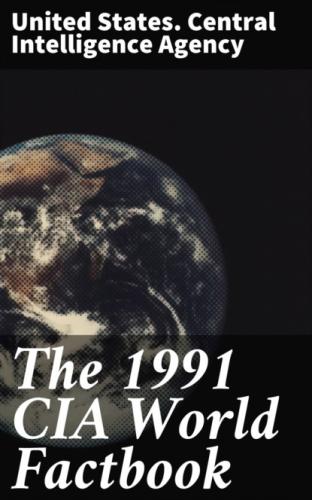_#_Currency: Communaute Financiere Africaine franc (plural—francs); 1 CFA franc (CFAF) = 100 centimes
_#_Exchange rates: CFA francs (CFAF) per US$1—256.54 (January 1991), 272.26 (1990), 319.01 (1989), 297.85 (1988), 300.54 (1987), 346.30 (1986), 449.26 (1985)
_#_Fiscal year: calendar year
_*Communications #_Railroads: 620 km total; 520 km Ouagadougou to Ivory Coast border and 100 km Ouagadougou to Kaya; all 1.00-meter gauge and single track
_#_Highways: 16,500 km total; 1,300 km paved, 7,400 km improved, 7,800 km unimproved (1985)
_#_Civil air: 2 major transport aircraft
_#_Airports: 50 total, 43 usable; 2 with permanent-surface runways; none with runways over 3,659 m; 2 with runways 2,440–3,659 m; 7 with runways 1,220–2,439 m
_#_Telecommunications: all services only fair; radio relay, wire, and radio communication stations in use; 13,900 telephones; stations—2 AM, 2 FM, 2 TV; 1 Atlantic Ocean INTELSAT earth station
_*Defense Forces #_Branches: Army, Air Force, National Gendarmerie, National Police
_#_Manpower availability: males 15–49, 1,838,000; 937,304 fit for military service; no conscription
_#Defense expenditures: $55 million, 2.7% of GDP (1988) % @Burma *Geography #_Total area: 678,500 km2; land area: 657,740 km2
_#_Comparative area: slightly smaller than Texas
_#_Land boundaries: 5,876 km total; Bangladesh 193 km, China 2,185 km, India 1,463 km, Laos 235 km, Thailand 1,800 km
_#_Coastline: 1,930 km
_#_Maritime claims:
Contiguous zone: 24 nm;
Continental shelf: edge of continental margin or 200 nm;
Exclusive economic zone: 200 nm;
Territorial sea: 12 nm
_#_Climate: tropical monsoon; cloudy, rainy, hot, humid summers (southwest monsoon, June to September); less cloudy, scant rainfall, mild temperatures, lower humidity during winter (northeast monsoon, December to April)
_#_Terrain: central lowlands ringed by steep, rugged highlands
_#_Natural resources: crude oil, timber, tin, antimony, zinc, copper, tungsten, lead, coal, some marble, limestone, precious stones, natural gas
_#_Land use: arable land 15%; permanent crops 1%; meadows and pastures 1%; forest and woodland 49%; other 34%; includes irrigated 2%
_#_Environment: subject to destructive earthquakes and cyclones; flooding and landslides common during rainy season (June to September); deforestation
_#_Note: strategic location near major Indian Ocean shipping lanes
_*People #_Population: 42,112,082 (July 1991), growth rate 2.0% (1991)
_#_Birth rate: 32 births/1,000 population (1991)
_#_Death rate: 13 deaths/1,000 population (1991)
_#_Net migration rate: 0 migrants/1,000 population (1991)
_#_Infant mortality rate: 95 deaths/1,000 live births (1991)
_#_Life expectancy at birth: 53 years male, 56 years female (1991)
_#_Total fertility rate: 4.1 children born/woman (1991)
_#_Nationality: noun—Burmese; adjective—Burmese
_#_Ethnic divisions: Burman 68%, Shan 9%, Karen 7%, Rakhine 4%, Chinese 3%, Mon 2%, Indian 2%, other 5%
_#_Religion: Buddhist 89%, Christian 4% (Baptist 3%, Roman Catholic 1%), Muslim 4%, animist beliefs 1%, other 2%
_#_Language: Burmese; minority ethnic groups have their own languages
_#_Literacy: 81% (male 89%, female 72%) age 15 and over can read and write (1990 est.)
_#_Labor force: 16,036,000; agriculture 65.2%, industry 14.3%, trade 10.1%, government 6.3%, other 4.1% (FY89 est.)
_#_Organized labor: Workers' Asiayone (association), 1,800,000 members; Peasants' Asiayone, 7,600,000 members
_*Government #_Long-form name: Union of Burma; note—the local official name is Pyidaungzu Myanma Naingngandaw which has been translated by the US Government as Union of Myanma and by the Burmese as Union of Myanmar
_#_Type: military regime
_#_Capital: Rangoon (sometimes translated as Yangon)
_#_Administrative divisions: 7 divisions* (yin-mya, singular—yin) and 7 states (pyine-mya, singular—pyine); Chin State, Irrawaddy*, Kachin State, Karan State, Kayah State, Magwe*, Mandalay*, Mon State, Pegu*, Rakhine State, Rangoon*, Sagaing*, Shan State, Tenasserim*
_#_Independence: 4 January 1948 (from UK)
_#_Constitution: 3 January 1974 (suspended since 18 September 1988)
_#_Legal system: martial law in effect throughout most of the country; has not accepted compulsory ICJ jurisdiction
_#_National holiday: Independence Day, 4 January (1948)
_#_Executive branch: chairman of the State Law and Order Restoration Council, State Law and Order Restoration Council
_#_Legislative branch: unicameral People's Assembly (Pyithu Hluttaw) was dissolved after the coup of 18 September 1988
_#_Judicial branch: Council of People's Justices was abolished after the coup of 18 September 1988
_#_Leaders:
Chief of State and Head of Government—Chairman of the State Law and Order Restoration Council Gen. SAW MAUNG (since 18 September 1988)
_#_Political parties and leaders:
National Unity Party (NUP; proregime), THA KYAW;
National League for Democracy (NLD), U TIN OO and AUNG SAN SUU KYI;
League for Democracy and Peace, U NU
_#_Suffrage: universal at age 18
_#_Elections:
People's Assembly—last held 27 May 1990, but Assembly never convened; results—NLD 80%; seats—(485 total) NLD 396, the regime-favored NUP 10, other 79
_#_Communists: several hundred (est.) in Burma Communist Party (BCP)
_#_Other political or pressure groups: Kachin Independence Army (KIA), United Wa State Army (UWSA), Karen National Union (KNU), several Shan factions, including the Shan United Army (SUA) (all ethnically-based insurgent groups)
_#_Member of: AsDB, CP, ESCAP, FAO, G-77, GATT, IAEA, IBRD, ICAO, IDA, IFAD, IFC, ILO, IMF, IMO, INTERPOL, IOC, ITU, LORCS, UN, UNCTAD, UNESCO, UNIDO, UPU, WHO, WMO
_#_Diplomatic representation: Ambassador U MYO AUNG; Chancery at 2300 S Street NW, Washington DC 20008; telephone (202) 332–9044 through 9046; there is a Burmese Consulate General in New York;
US—Ambassador (vacant); Deputy Chief of Mission Franklin P. HUDDLE, Jr.; Embassy at 581 Merchant Street, Rangoon (mailing address is G. P. O. Box 521, Rangoon or Box B, APO San Francisco 96346); telephone 82055 or 82181
_#_Flag: red with a blue rectangle in the upper hoist-side corner bearing, all in white, 14 five-pointed stars encircling a cogwheel containing a stalk of rice; the 14 stars represent the 14 administrative divisions
_*Economy #_Overview: Burma is a poor Asian country, with a per capita GDP of about $400. The nation has been unable to achieve any substantial improvement in export earnings because of falling prices for many of its major commodity exports. For rice, traditionally the most important export, the drop in world prices has been accompanied by shrinking markets and a smaller volume of
